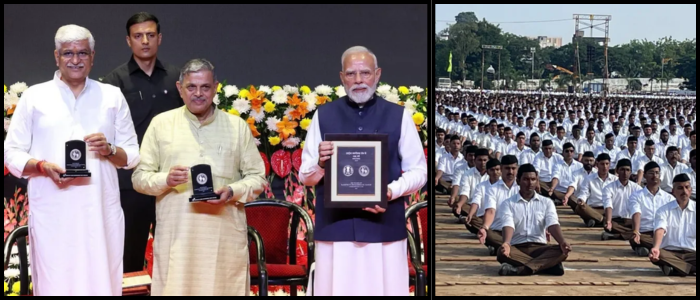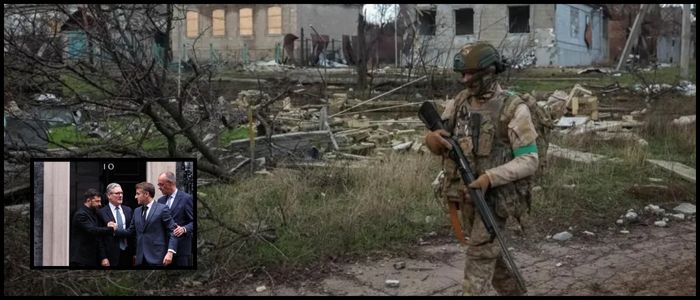"The world works through dependence on each other. No country can be independent," Bhagwat reflected as he repeated how Prime Minister Narendra Modi had recently promoted self-reliance.
3,800 volunteers dressed in khaki pants, white shirts, and black three-cornered hats took part in a militaristic procession during the Nagpur event. Participants marched in the heat to demonstrate a vector, synchronized action of zeal in the clearly ordinary practice of national volunteer organization uptake by the RSS, all members of the RSS.
Prime Minister Modi, who also had been an RSS campaigner when he was younger, similarly praised the organization at a separate event in Delhi. Modi issued a commemorative coin and stamp to acknowledge the centenary, which many opposition political parties criticised.
Growth, Influence and Image
Founded in 1925 by physician Keshav Baliram Hedgewar, the RSS has grown from its small origins with a founding group of maybe a dozen men, to what it claims to be the largest volunteer organization in the world now. It has correct membership counts, but as its spokesperson, Sunil Ambekar explained, it has no official records, and the voluntary membership group thus decided to maintain vagueness.
Although they claim the RSS is not involved, it has been an impressive framing influence of what is understood to be the political party scope of India under the deflected ideology of the ruling Bharatiya Janata Party (BJP), many of whom are connected to the extensive and organized voluntary membership group engaging on behalf of the BJP. Experts say it is large, expansive, and hard to get rid of from some larger bed of other identifiable Hindu nationalist aligned associations/ groups, known as Sangh Parivar.
The organization also operates schools, health centres, and disaster relief programs, and for some, they just appreciate the social health side of being able to work with a preferably active volunteer organization. Thus, others have ordered that RSS operate with an ideology for Hindu nationalism, which sometimes has often come across as a discriminatory ideology and practice.
Legacy and Controversy
The RSS has also been associated with some of the more controversial aspects in contemporary Indian history. The Babri Mosque in Ayodhya was demolished by a set in December 1992, by a mob of RSS volunteer members, which resulted in riots that killed nearly 2,000 victims. After the indicated mob-style action, the RSS was banned by Indian government bodies, just as they had previously and then again imposed on the organization after much dispute from some instances of the previous ban from the assassination of Gandhiji associated with an RSS-affiliated member.
Even the Prime Minister was able to ceremoniously inaugurate a temple to the god Ram, the RSS and more appropriately associated icon associated with their derived affiliate for many Hindutva movements, last year as a long-awaited demand of the BASIC Hindutva movement. Again, too, just to create part of the demand for opening the temple, the RSS and its affiliated members engage in and produce numerous violent acts of terror across the country.
The RSS has been attempting to continue to expand its reach through voluntary efforts, organising different public ceremonies and hosting conclaves and meetings with select associated media representatives, but when they invite you as a guest, it is typically just very selective. The invitations to be part of any event to reach some level of acknowledgement of their events are organized and can only take attendee arrangement access to host the event if at all.
In the speech of Bhagwat, he reiterated that "despite all our identities, we are all ultimately parts of a bigger society. We are one as a country, we are one as a culture, and we are one as a nation."
Its supporters claim the organisation provides identity, discipline, and pride to the culture of India, and to its critics claim RSS provides an ideology that typically results in minorities. For many, it is timely to consider the influences of the RSS on social, political, and identity in India.
World

RSS Celebrates 100 Years Amid Praise and Criticism

The Rashtriya Swayamsevak Sangh (RSS) has recognized 100 years of existence, the biggest Hindu nationalist organization in India, and held a festivity in Nagpur with a gathering of thousands of its supporters. RSS leader Mohan Bhagwat spoke about everything from the recent battle with Pakistan to the consideration of climate change, economic inequality, and political instability in some neighbouring countries.















